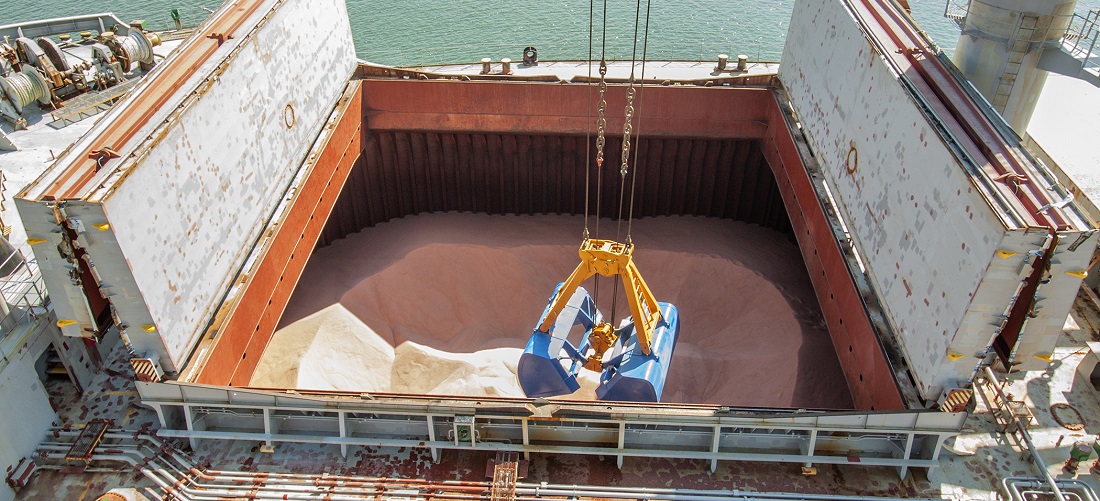
Russia loses share to Canada, USA in the supply of fertilizers to Brazil
Oct, 17, 2022 Posted by Gabriel MalheirosWeek 202242
In 2022, a year plagued by the war in Ukraine, Russia managed to retain its leadership position in the supply of fertilizers to Brazil, albeit losing a share of this market to Canada and the USA, show data by Itaú BBA disclosed on October 14.
Brazil imports nearly 85% of the fertilizers it consumes. However, at the other end of the trade lane, Russia and its ally in the war, Belarus, two important world suppliers, reduced their participation in deliveries of such products to Brazil in 2022 year-to-date amid severe Western sanctions.
In the first nine months of 2022, Brazil acquired 27.88 million tonnes of fertilizers on the international market compared to 26.86 million in the same period last year, Itaú said based on data from the federal government.
Russia accounted for 23% of the total imports by Brazil. But between January and September 2021, 25% of the burden fell on the Russians.
On the other hand, Canada increased its share from 11% to 14% year-on-year, equaling China, which also supplied 14% of the fertilizers purchased by Brazilians this year.
Last year, Morocco represented 8% of the sector’s supply to Brazil, dropping to 6%.
In addition, Belarus lost its place in the list of top exporters to Brazil in 2021 (7%) to the United States, which was out of the top ranking until last year and now ranks at 6%, data compiled by the bank showed.
“The main countries exporting fertilizers to Brazil until the end of the ninth month of 2022 were Russia, Canada, and China, with Canada increasing its representativeness in volume exported compared to the same period of the previous year,” said Itaú BBA in the study.
In early March, shortly after the outbreak of the war in Ukraine, then Minister of Agriculture of Brazil Tereza Cristina traveled to Canada and held meetings to expand the supply of fertilizers produced by companies such as Brazil Potash.
Russian fertilizers continued to arrive even after the onset of Western sanctions triggered by the conflict.
Please find below the track record of the volume of fertilizers imported by Brazil from three major suppliers (Russia, Canada, and the US) between January 2019 and August 2022. The data is from DataLiner.
Brazilian fertilizer imports | Jan 2019 – August 2022 | WTMT
Source: DataLiner (click here to request a demo)
The diplomatic efforts by the Brazilian government with Russia to guarantee the supply of fertilizers —which included a diplomatic visit from President Jair Bolsonaro— were unable to stop the national industry from declining to buy the product sold by the Kremlin, leaving Brazilian farmers with no option but to cope with exorbitant prices.
The high costs led the Anda fertilizer association to estimate a drop between 5% and 7% for domestic product deliveries in 2022.
According to an estimate by Itaú BBA on the volume of imports that should still take place in the final quarter of the year, “if we consider the volume of imports carried out until September 2022, international purchases until the end of 2022 will have to reach 9.3 million tonnes” to achieve an amount of deliveries 5% lower than in 2021.
The recent decline in fertilizer prices favors the exchange ratio for farmers, encouraging imports in the coming months.
In the case of potassium chloride (KCl), Itaú BBA calculates that 21.5 bags of soybeans are equivalent to a tonne of KCl, a ratio below the records of last year, which was close to 28 bags but still above the historical average.
Source: Money Times
To read the full original article, please go to: https://www.moneytimes.com.br/russia-perde-espaco-para-canada-e-eua-no-fornecimento-de-fertilizantes-ao-brasil/
-
Grains
Jan, 31, 2023
0
Brazil: Anec exporters association lowers soy, corn, wheat estimates
-
Ports and Terminals
Jun, 09, 2023
0
Santos Brasil breaks productivity record at Tecon Vila do Conde
-
Automotive
Feb, 02, 2022
0
Volvo to invest R$ 1.5 billion in Brazil
-
Shipping
Sep, 08, 2021
0
COSCO could surpass CMA CGM as third largest container line

